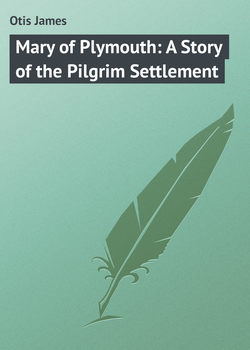Читать книгу Mary of Plymouth: A Story of the Pilgrim Settlement - Otis James - Страница 7
FINDING THE CORN
ОглавлениеNot until Friday evening did our fathers come back; no one of all the party of seventeen was missing, although it seemed to me they had been in great danger.
Before they had gone on their journey more than a mile from the Mayflower, they saw five savages and a dog coming toward them, and hastened forward to learn what they might about this new world. The Indians ran among the trees as soon as they saw our people, and they ran so swiftly it was impossible to overtake them.
After making chase without coming upon the savages, Captain Standish led the way along the shore until next day they came upon what looked as if an Indian village had once been in that place, for the land had been dug over much as though to raise crops, and there were what appeared to be many graves. On opening one of these piles of sand, there were found two baskets full of what one of the sailors said was Indian corn; but another declared it was Turkish wheat, while Captain Standish believed it should be called Guinny wheat. It had been left near the graves, for these savages believe that even after people are dead, they need food.
Later, when we had become acquainted with Samoset and Squanto, we came to know that on the spot which had been chosen for our home, there had been a large Indian village. Four years before we of the Mayflower came, a terrible sickness had attacked the settlement of savages, and more than two hundred died. Those who were alive and able to walk, deserted the place to go many miles into the forest away from the sea, and, except for the graves which our people found, every trace of the town was wiped out, the savages believing that only by the destruction of everything connected with the settlement, could the evil spirit of the mysterious sickness be cast out.
Our men were very glad to find this wheat, and as soon as they had brought it aboard the vessel, the women set about boiling some, for that seemed to be the only way in which it could be eaten, since it is hard, almost like flint. Neither Sarah nor I, hungry though we were, felt like eating what had been left for dead people; but we did taste of it, and found it very good, even though it had not been cooked quite enough.
It was not long, however, before we found out how to prepare it, and many a time since then has it saved us from starving, but of that I will tell you later.
